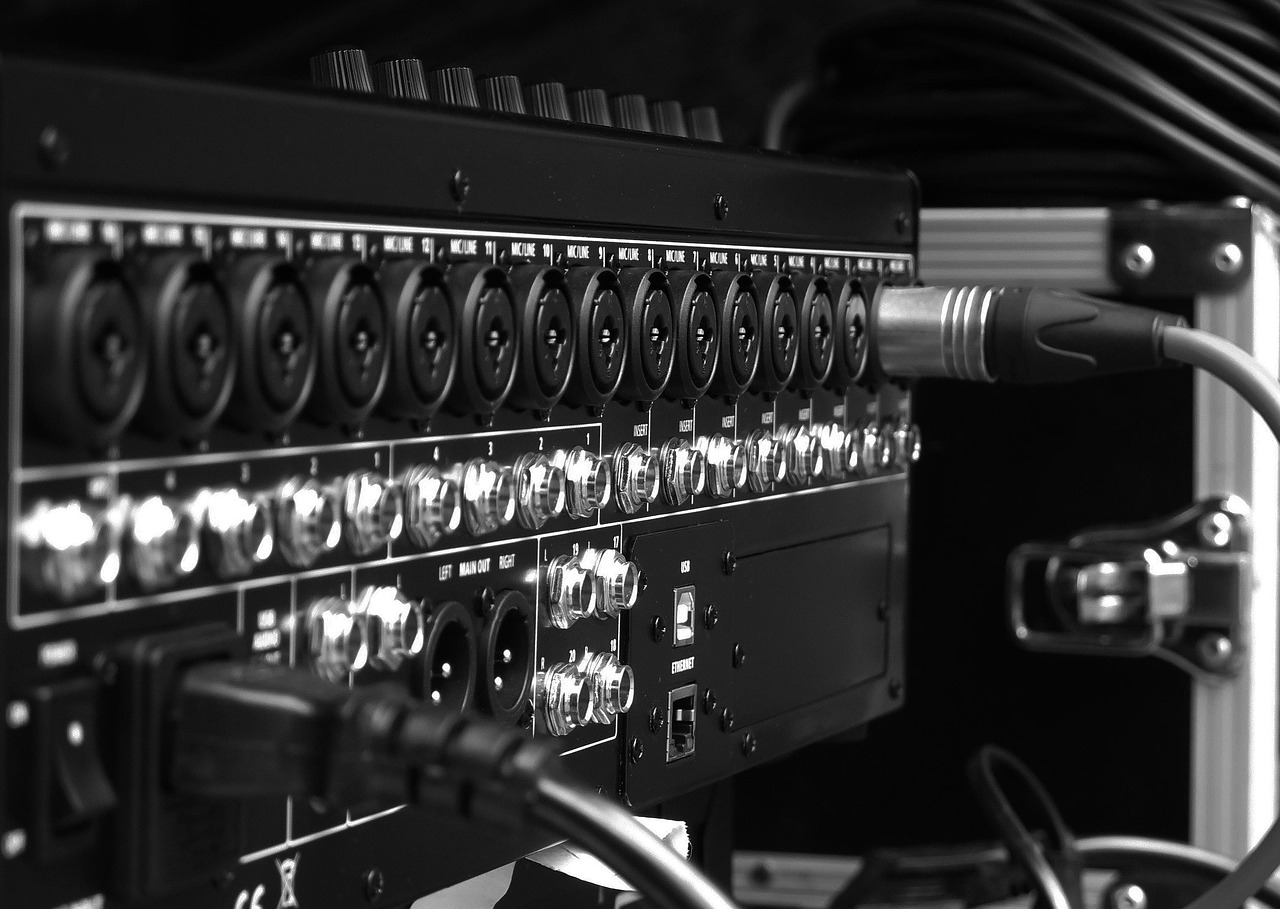Supply Chain Vertical Integration of Backline Equipment for Music Festivals.

The bulk of music festivals operate with limited funds and challenging cash flow along with seasonality influences on when revenue is generated. For this reason, most organisers choose to rent their backline equipment from a reliable supplier, however, are there benefits and opportunities from purchasing their own backline equipment.
Vertical integration in the supply chain is a well proven strategy for businesses where control over supply is seen as beneficial. Quality backline equipment is an essential requirement for every music festival but with many events taking place at the same time demand can drive up rental prices and make it difficult to secure bookings. The purchase approach will require up-front investment that not all festival entities can afford but for those with suitable funding the purchase and management of backline equipment may make perfect business sense.
Festival Backline Equipment Supply.
To maximise smooth changeovers and minimise logistical complexities festival entities usually provide backline equipment for artists which typically include drum kits, keyboards, guitars, FX pedals, stands, cases, cables, amplifiers and speakers for example. There are numerous backline equipment specialist suppliers that are regularly used by festival entities and the majority of organisers have good relationships with them. There may be significant benefits for organisers by considering supply chain vertical integration which may involve buying a supplier with an existing inventory or starting from scratch and purchasing the newest latest equipment. If buying new equipment, the purchase would be considered a capital expenditure which is an investment cost of an asset that is written off over a number of years in the financial accounts with potential tax benefits. Making an acquisition of an existing supplier is treated differently for accounting purposes and will appear as a significant one-off cost depending on the acquisition terms.
Advantages of Purchase and Ownership of Equipment.
A festival entity will no longer incur equipment rental costs for their events but it may appear as a simple inter departmental cost. Organisers can eliminate common supplier issues and delivery date problems. The organising entity will have specified the equipment technical requirements when purchased so they will be safe in the knowledge that artists are more likely to be using equipment that meets their exact specifications. As the entity owns the equipment, they will know that it has been well maintained and is in excellent working condition. The festival may be able to enhance its reputation with booked artists who appreciate the use of quality, reliable and consistent backline equipment. Owning backline equipment allows for the creation of a new profit centre for the entity who can now provide rental services to other music festivals. Hiring out equipment to other events when it is not required is a great way to generate additional revenue that may pay for storage and the employment of technical staff.
Disadvantages of Purchase and Ownership of Equipment.
Aside from the investment required to purchase backline equipment there are other cost implications particularly for having suitable storage facilities that may need to be environmentally controlled. In addition, some technical expertise will need to be hired to repair and maintain equipment as well as engineers who will need to provide event set up services. As a depreciating asset the equipment will become obsolete over time and will need to be replaced, driven by external factors like manufacturing technical innovation or the changing requirements of artists. Additional insurance will also have to be purchased to safeguard equipment form theft or damage and premiums can be very high.
An Alternative Approach.
Given the mix of advantages and disadvantages of purchasing backline equipment organising entities may consider a hybrid approach to backline equipment. Limiting backline equipment purchase to just popular core items like drum kits, amplifiers and speakers can reduce any initial investment costs and ongoing maintenance. These common equipment items require lower maintenance intervals and may have a slower rate of obsolescence too. Niche equipment that rarely gets requested or can be expensive to purchase can be rented from other backline suppliers as and when needed. The vertical integration into the backline equipment supply chain can open opportunities for new partnerships especially with equipment manufactures and other backline suppliers.
For festival organisers planning their next event using a software management platform like Festival Pro gives them all the functionality they need manage every aspect of their event logistics. The guys who are responsible for this software have been in the front line of event management for many years and the features are built from that experience and are performance artists themselves. The Festival Pro platform is easy to use and has comprehensive features with specific modules for managing artists, contractors, venues/stages, vendors, volunteers, sponsors, guestlists, ticketing, site planning, cashless payments and contactless ordering.
Image by onkelglocke via Pixabay
<< Back to articles
Contact us
Get in touch to discuss your requirements.
US: +1 424 485 0220 (USA)
UK: +44 207 060 2666 (United Kingdom)
AU: +61 (2) 8357 0793 (Australia)
NZ: +64 (0)9887 8005 (New Zealand)